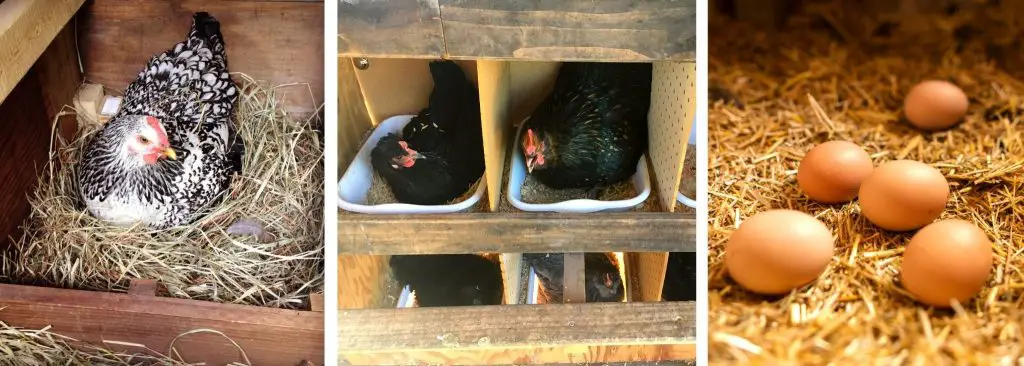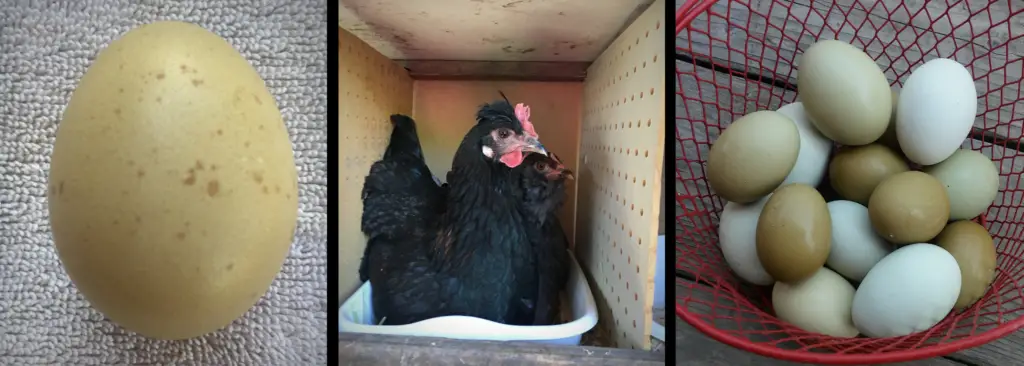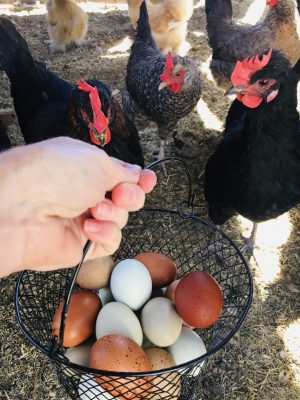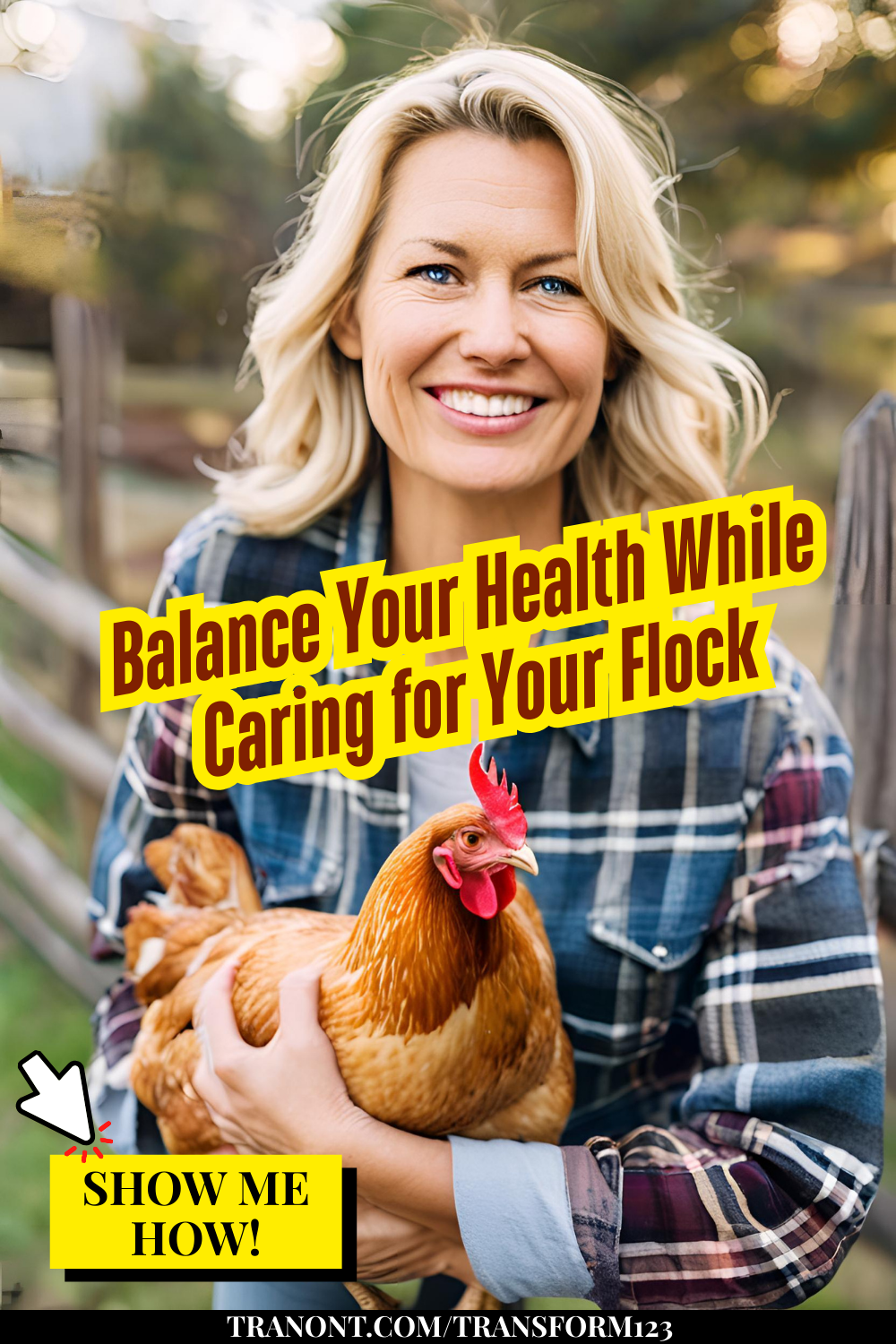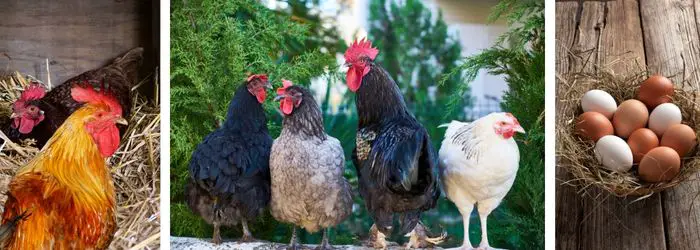
“Do Hens Need Roosters to Lay Eggs?” Contrary to what many people think, a hen does not need a rooster in order to produce and lay an egg. The only difference is that the eggs will not be fertilized and cannot produce a baby chick if incubated.
This article will reveal to you 5 things that every flock owner should know about their hens and the eggs that they produce without a rooster present.
1. How do You Get Chickens to Lay Eggs Without a Rooster?
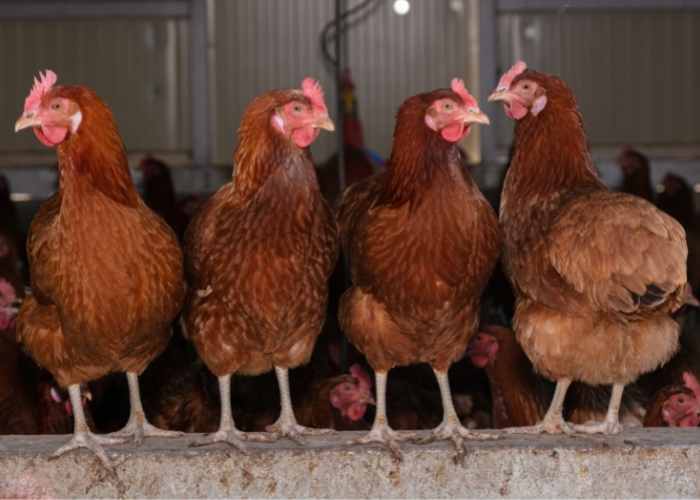
There is absolutely nothing that you have to do to get your chickens to lay eggs without a rooster. When a hen becomes of laying age, between 16-24 weeks of age, she will naturally produce eggs on her own. But there are several things that you can do to your hens nesting box that will help stimulate her to lay eggs.
Nesting Box Tips to Increase Egg Laying in Hens
- Provide appropriate size nesting boxes for your hens
- Nesting boxes should be at the proper level
- Provide proper nesting material in the nesting boxes
- Nesting boxes should be located in a quiet, dark location
- Sprinkle natural herbs that will stimulate egg laying into your hens nesting boxes
- Keep the nesting boxes clean
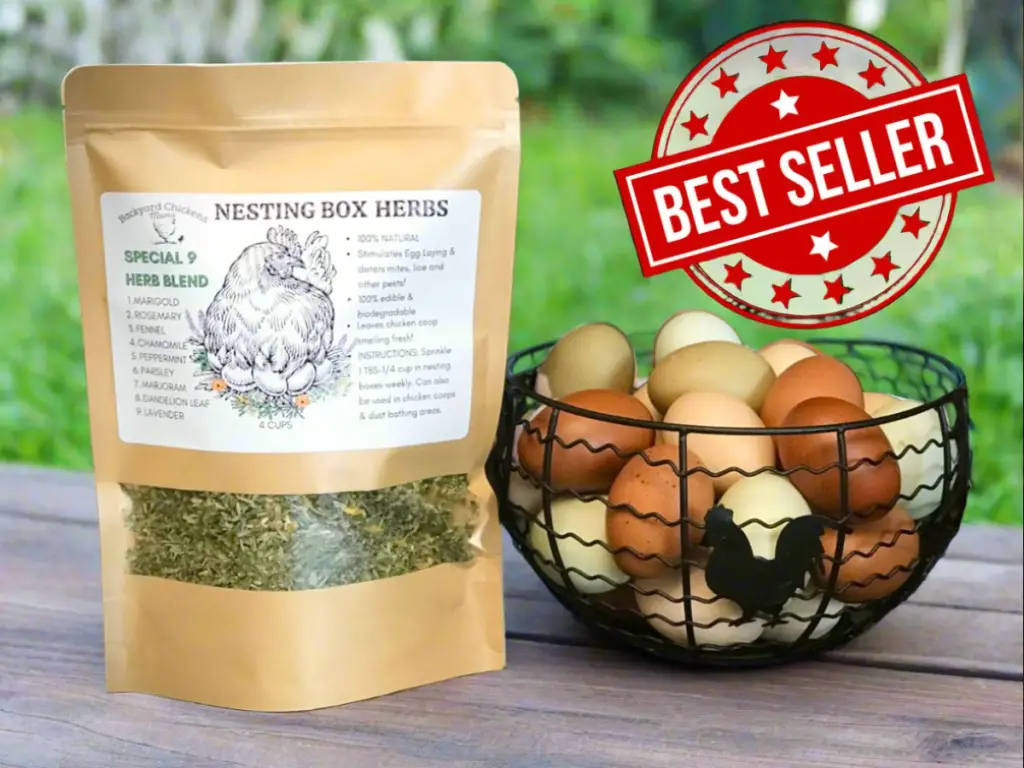
Increases egg laying naturally.
- Improves chicken health.
- Deters parasites: mites, lice, fleas & flies as well as mice, rats, raccoons, coyotes, opossums and more!
- On SALE!
- Shop: Nesting Box Herbs
2. Do Hens Lay More Eggs With a Rooster?
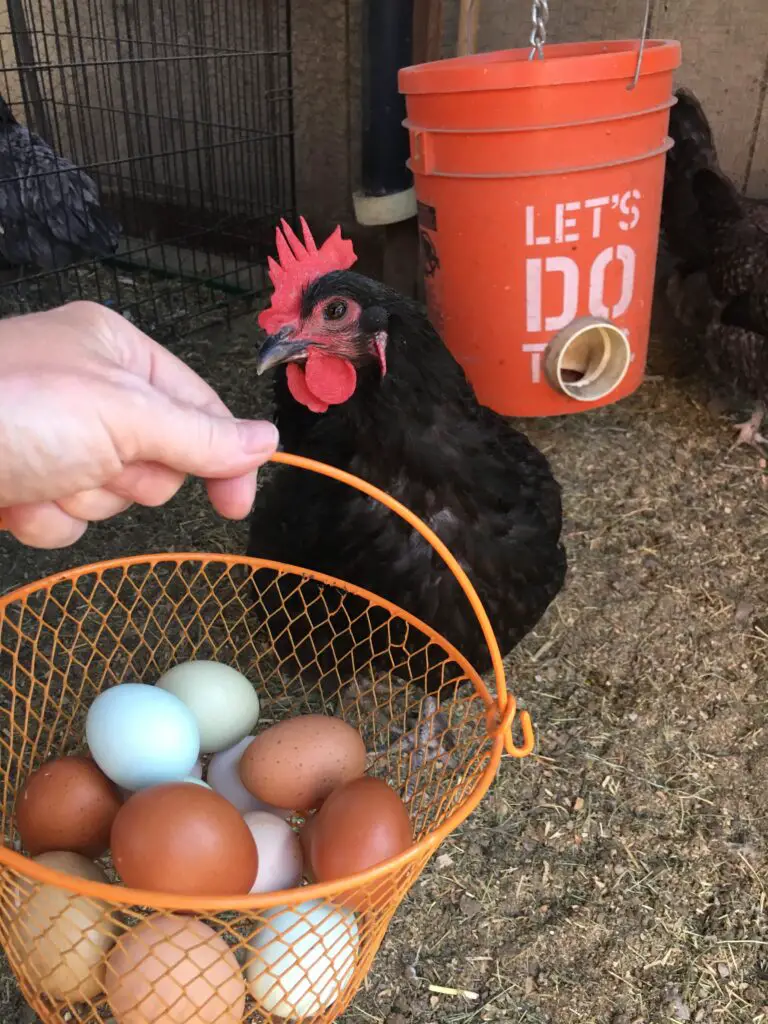
Hens will not lay any more or less eggs with a rooster present. So, in other words, having a rooster will not affect a hens production of eggs. But there are several things that will affect your hens laying.
Hens Will Lay More Eggs if Her Following Needs Are Met
- Nutritionally balanced feed is offered
- Provided with enough food
- Provided with enough clean water
- Provided with sufficient calcium and grit or dirt
- Is not being bullied
- Is provided with sufficient space to move around
- Not experiencing crowded conditions
- Is provided with a safe place to lay her eggs (nesting box)
- Is not experiencing stress from predators
- Chicken coop and nesting boxes are clean
- She does not have parasites or any other illnesses

Increases egg laying naturally.
- Improves chicken health.
- Deters parasites: mites, lice, fleas & flies as well as mice, rats, raccoons, coyotes, opossums and more!
- On SALE!
- Shop: Nesting Box Herbs
3. Can I Eat a Fertile Chicken Egg?
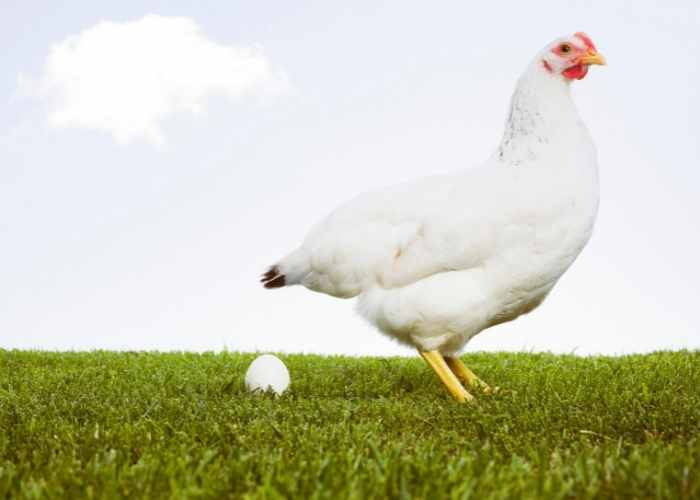
Fertile chicken eggs are perfectly safe to eat. Chicken eggs can only be fertilized if there is a rooster present and it mated with your hen within the past 30 days.
How Fertile Chicken Eggs are Produced
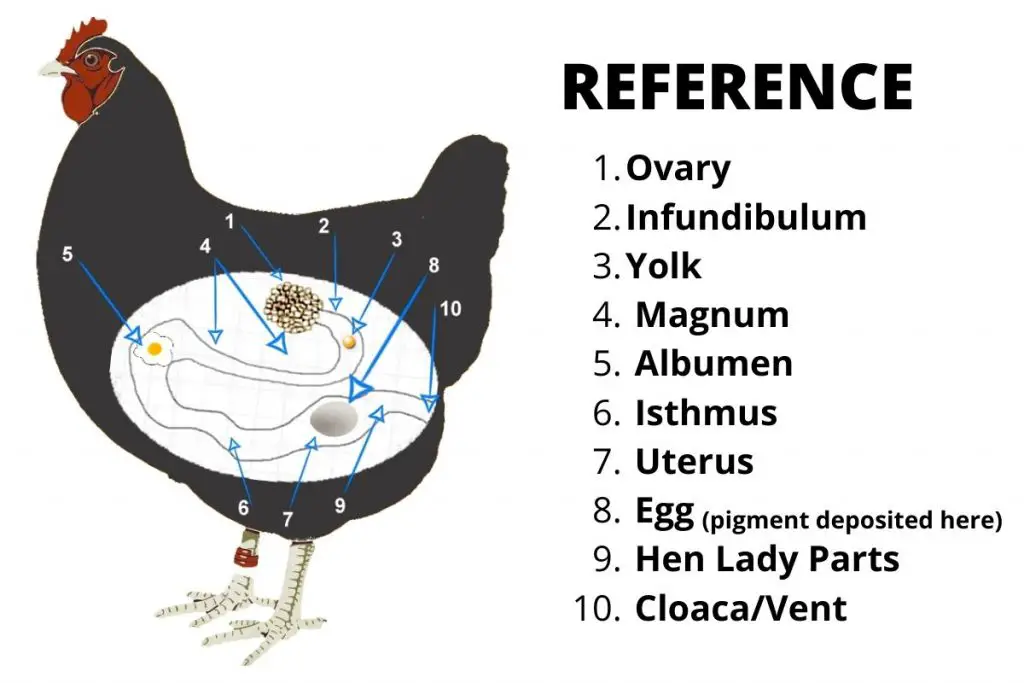
- All it takes is one time mating with your hen and she can produce fertile eggs for up to 30 days.
- When a rooster mates with a hen, a rooster and hens cloaca’s “kiss.” It is at this point that the roosters semen enters a hens cloaca.
- If the hen likes the rooster and wants to produce offspring from him, she will store the sperm inside sperm storage tubules (SST) for up to 30 days.
- If a hen doesn’t like the rooster that mated with her or doesn’t want to have offspring from him, she can reject the sperm by squirting it out!
If your goal is not to produce baby chicks, it is important to gather your fertile chicken eggs daily. Fertile eggs that are left underneath a hen will begin to develop within 24 hours.
Fertile chicken eggs need to be stored at a cooler temperature than non fertile eggs. It is best to keep stored fertile eggs at a temperature between 55-65℉. If they are kept at temperatures warmer than 72℉, they will begin to develop. They will not develop properly and will die, but you don’t want this to happen.
During warmer temperatures, you can store fertile eggs in your refrigerator to stop them from developing.
4. Do Fertile Chicken Eggs Taste Different?
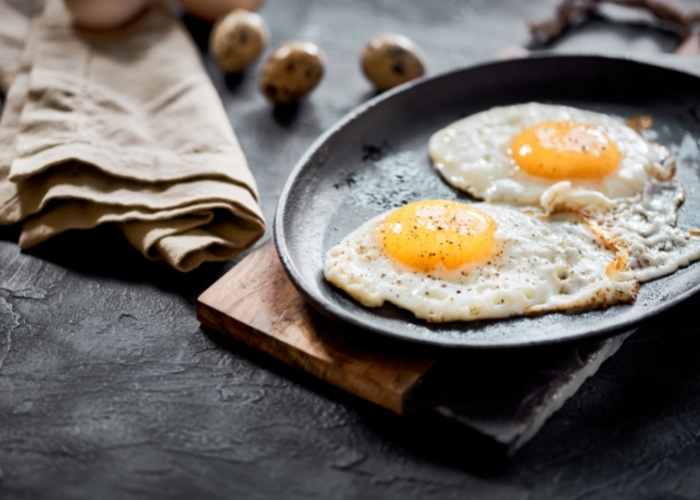
Fertile chicken eggs taste the same as non-fertile chicken eggs and are equally as nutritious. What does affect the taste of a chicken egg is they way in which a hen and rooster was raised, not that they have been fertilized by a rooster.
“Eggs laid by hens that are allowed to free-range in pastures have access to a healthier, more natural diet. Free-range and pasture-raised chickens get more exercise and are therefore healthier, producing better tasting eggs.”
What Makes Farm Fresh Eggs Taste Better?
| WHAT MAKES FARM FRESH EGGS TASTE DIFFERENT? |
|---|
| ⬆️ OMEGA 3 FATTY ACIDS |
| ⬆️ VITAMIN D |
| ⬇️ CHOLESTEROL |
| ⬇️ SATURATED FAT |
| ⬆️ VITAMIN E |
| ⬆️. VITAMIN A |
| ⬆️. BETA CAROTENE |
5. Benefits of Having a Rooster With Laying Hens
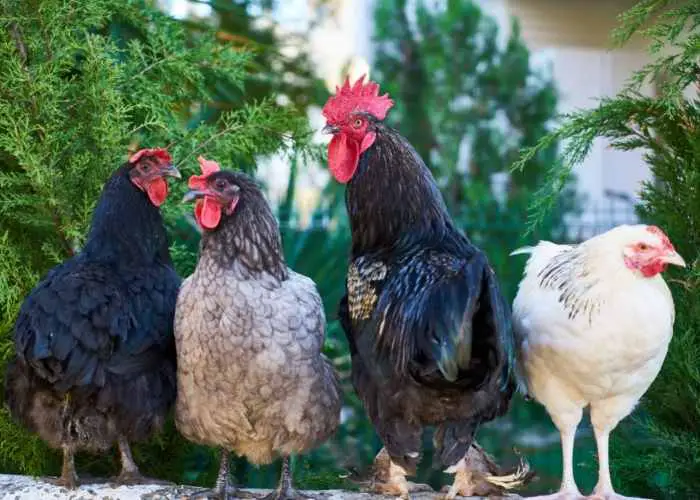
There are several benefits of keeping a rooster around for your laying hens.
6 Top Benefits of Keeping a Rooster With Your Laying Hens
- Roosters will protect your hens. He will give up his life by fighting with predators in order to protect his ladies.
- He will keep order within the flock. Flocks that have a rooster are less likely to have squabbles among the hens.
- A rooster will help your hens find food and he will even bring it to them.
- He will help your hens find a good place to lay her eggs.
- Having a rooster will allow your hens to produce baby chicks.
- Roosters are a beautiful addition to a flock. They are usually much brighter and larger than the hens.
For more Benefits of Raising Roosters, please visit McMurray Hatchery blog.
CONCLUSION: Do Chickens Need a Rooster to Lay Eggs? 5 Things You Need to Know
- Chickens do not need a rooster to produce and lay eggs. They will produce eggs with or without a rooster present.
- Having a rooster will not make your hens lay more eggs. In order to stimulate your hens to produce more eggs, make sure you provide nesting boxes that are to her liking.
- Fertile eggs are perfectly safe to eat and are nutritionally the same as an infertile egg.
- Fertile eggs taste just the same as an infertile egg. It’s the conditions in which a hen was raised that can affect the taste of an egg.
- Keeping a rooster(s) has many benefits!

